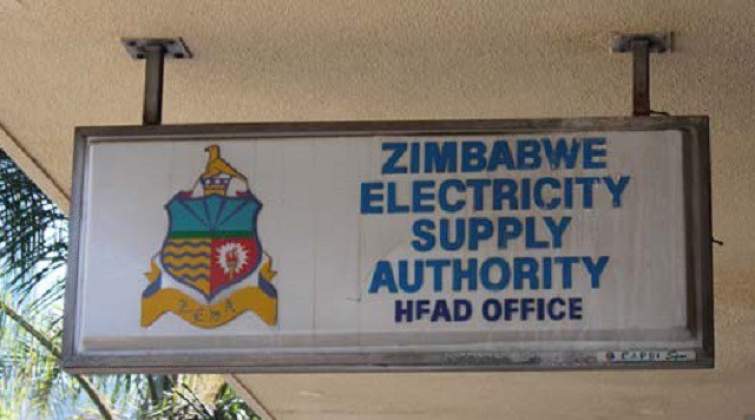By Own Correspondent
THE Zimbabwe Electricity Distribution and Transmission Company (ZETDC) revenue assurance boss, Wilfred Shereni, is under fire for reportedly prejudicing the Zesa Holdings subsidiary of millions of dollars.
The revelation is only one of the latest in a series surrounding the power utility’s graft sagas.
Shereni is facing accusations of failing to sign contract addendums, failure to perform periodic reconciliations throughout the course of the prepaid meter installations and approving prepaid meter installations without adequate supporting documentation.
The pre-paid metering project involved three suppliers – Solar Hart, Finmark Energy and Nyamazela who – according to an audit report by Price Waterhouse and Coopers (PWC), did not go through proper approvals by the Procurement Regulatory Authority of Zimbabwe (PRAZ), formerly State Procurement (SPB).
After fishing out a possible prejudice on ZETDC revenues, PWC recommended that Shereni, together with the former managing director Julian Chinembiri and finance director Dhliwayo, should face disciplinary action.
This publication is reliably informed that to date, no action has been taken against Shereni, something that has raised questions within the ZETDC management and ZESA Holdings board members who were recently reinsted by President Emmerson Mnangagwa.
Contacted for comment, Shereni confirmed the allegations, citing that he went for an internal disciplinary panel where he was demoted by a grade.
“I went through a hearing and was demoted by one grade from my previous executive position.
“Re-assignment was not going to happen because the project that I was in charge of when the allegations came about was completed,” Shereni said.
Reinstated ZESA Holdings executive chairman Sydney Gata refused to comment on the matter, only saying “I don’t speak to the Press through the phone”.
Acting ZETDC managing director Lovemore Chinaka did not respond to questions sent to him.
There are allegations that despite the dismissal and arrest of other directors, including Chinembiri, there has been deliberate inaction with regards to the Shereni matter.
The report also said Shereni (together with the dismissed manager) was instrumental in the direct acquisition of pre-paid meters from suppliers without first getting the requisite PRAZ approval.
Furthermore, the report noted that the directive to procure before getting PRAZ’s approval was given by the directorate, among them the ZETDC managing director, Chinembiri, something that could not be authenticated by the meeting’s minutes.
This, according to the report, was in violation of Sections 26 and 28 of the Procurement Act.
PWC also noticed a price anomaly between what was approved by PRAZ and the final quotation on the orders that was paid to Finmark (for single phase meters) and Nyamezela (for the three phase meters).
In addition, the report noted that Shereni had commited an ‘error’ in capturing the prices for PRAZ approval and that no efforts were made by ZETDC to inform PRAZ of the price discrepancies.
Proceeding with unapproved prices was a violation of Section 42 (3) of the Procurement Act 22:14, which stipulates that procuring entities should comply with directives issued by PRAZ.
ZETDC’s procurement manager, Chisango, according to the audit report, also violated Section 42 of the Procurement Act by raising orders which captured the unapproved prices.
“Further to this, it appears Shereni circumvented the Procurement Department in his communications with PRAZ.
“This potentially contributed to ZETDC violating SPB regulations,” read part of the report.
It was also noted that Chindindi and Shereni violated Section 26 of the Procurement Regulations (S.I.171 of 2012) when they approved a purchase order which was not supported by appropriate PRAZ approvals.
The report further noted that none of the contractors managed to supply the contracted quantities within the stipulated timeframe and in this case, ZETDC was entitled to deduct liquidated damages from the contract price for each week of delay up to a maximum of 20%.
Liquidated damages, as specified in the addendum were, however, not instituted against the contractors and based on PWC’s computations, the liquidated damages would have amounted to US$20,538 for Finmark, US$148,500 for Solahart and US$253,750 for Nyamezela.
The total amount of US$422,788 – which was not claimed in liquidated damages – represented the actual financial prejudice to ZETDC, implying that Shereni and Chisango should have effected the stipulated penalties when the suppliers failed to deliver.
There were also some payments which were made without adequate supporting documentation, particularly the inspection sheets.
According to the audit report, Shereni, together with other directors, allegedlly exposed ZETDC to financial losses in all the cases where they approved payments were not supported by sufficient documentation.
The report also noted that payment for labour costs on meters supplied by Solahart but installed by ZETDC Depot teams, together with the agreement to pay Solahart 50% of the labour component, resulted in prejudice to ZETDC amounting to US$103,275.
“This was wasteful expenditure as the service paid for had not been rendered as ZETDC staff had performed the installations,” read the report.
